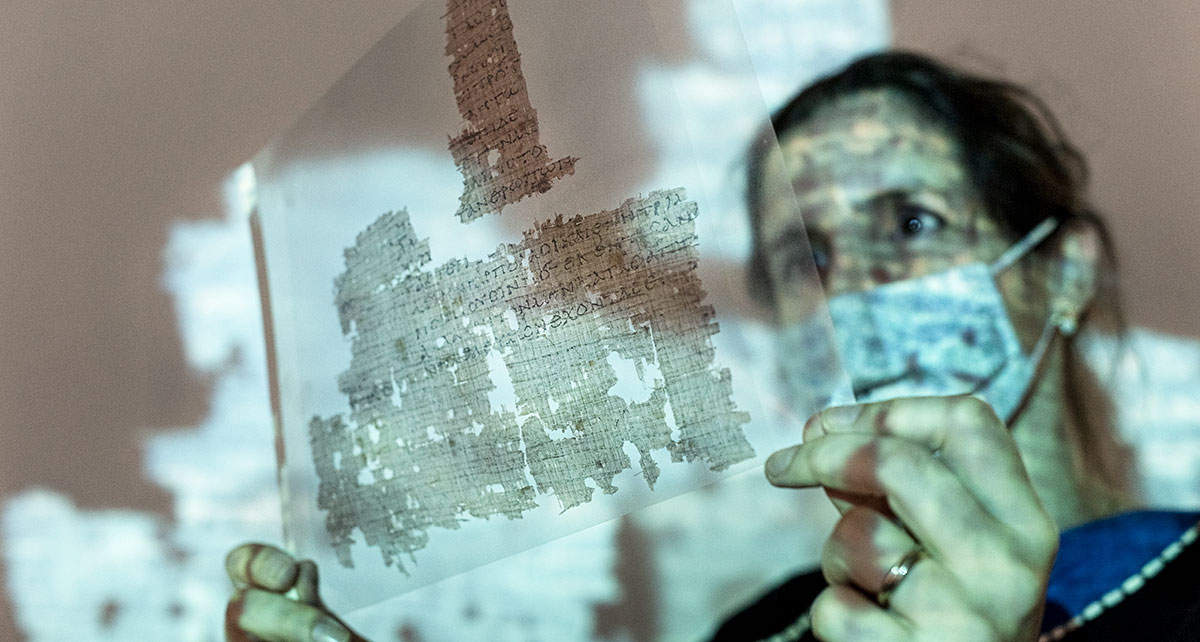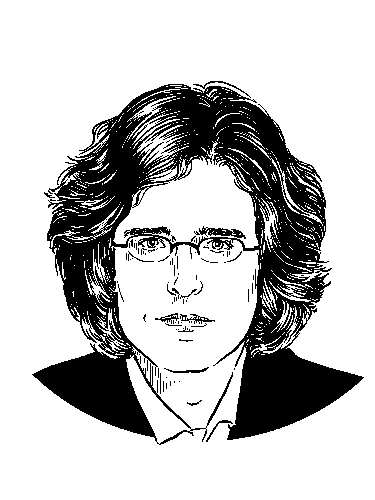Remembering and forgetting.
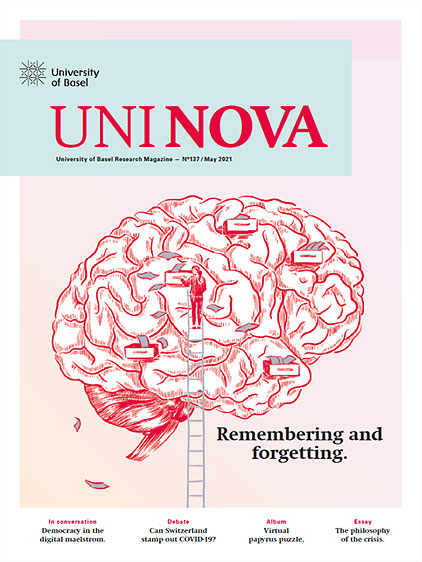 Download (PDF, 8 MB)
Download (PDF, 8 MB)
Our memory can transport us back to the past just like a time machine:
Previously stored experiences and information are brought to the surface; whereas other memories have long since been deleted to make room for new ones. Our memory is imperfect, which makes it all the more remarkable.
-
 Dossier
DossierLost years of infancy.
Text: Fabienne Hübener / Our earliest childhood memories are buried deep within us. But a number of clues indicate that we continue to store them throughout our lives. Why, then, are we unable to recall them? Flavio Donato and his team are hot on the trail of early memories in the brain.
-
 Dossier
DossierThe woman who never forgets.
Text: Angelika Jacobs / There are only about 60 people in the world who can remember everything they have ever experienced. For many of them, this is a source of considerable suffering. Researchers are now scouring their DNA for an answer to the question of why we are able to forget.
-
 Dossier
DossierSeeking support for the working memory.
Text: Santina Russo / We only tend to notice how heavily we rely on our working memory when it is no longer functioning properly, like when we age or if we are affected by mental illness. Researchers are currently looking for ways to improve short-term memory in everyday life.
-
Dossier
Risky surgeries.
Text: Sabine Goldhahn / Surgical interventions alleviate suffering and can save lives. For older patients in particular, however, operations are sometimes followed by memory problems. A research group at the University of Basel is studying this phenomenon in the hope of finding ways to keep the symptoms at bay.
-
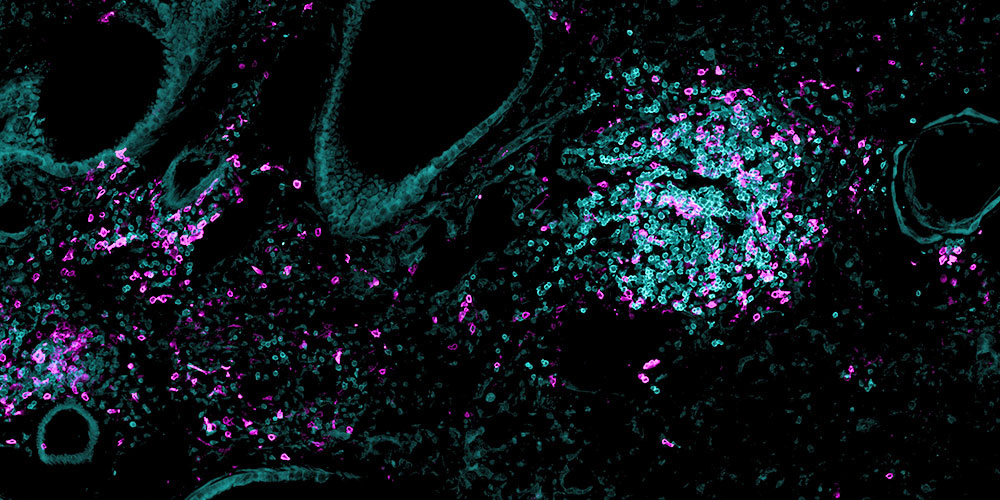 Dossier
DossierWhen the virus returns.
Text: Ori Schipper / Immunological memory is based on complex interactions between different types of cells, and the process involves thousands of genes. Two perspectives on a fascinating phenomenon with which scientists are still struggling to come to grips.
-
 Dossier
DossierCatching memory loss before it’s too late.
Text: Yvonne Vahlensieck / The earlier dementia is diagnosed, the more can be done about it. A research team in Basel is working to identify the very first signs of Alzheimer’s disease.
-
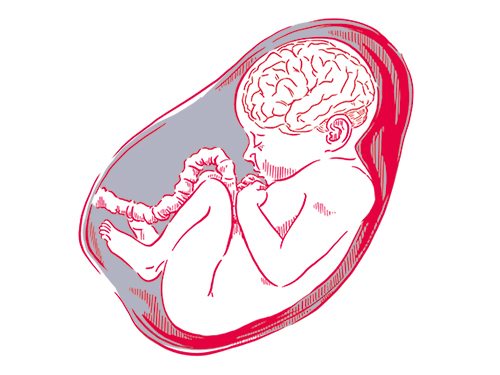 Dossier
DossierRemembering and forgetting.
Text: Angelika Jacobs, Illustrations: Studio Nippoldt / On the emergence and decay of memory: a journey from the first neurons to beyond death.
-
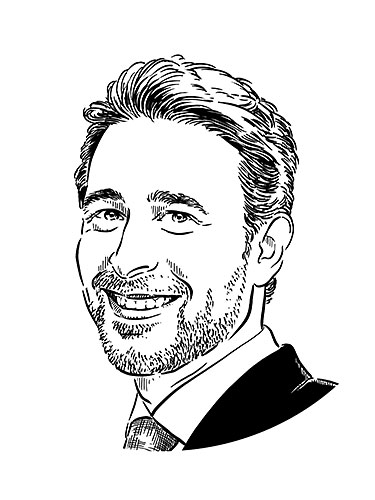 Dossier
DossierNo statute of limitations on serious crimes.
Interview: Christoph Dieffenbacher / Time is a key factor when investigating and sentencing serious crimes. An interview with criminal law expert Professor Christopher Geth about statutes of limitations and on forgetting in the justice system.
-
 Dossier
DossierCan memory be shared?
Text: Samuel Schlaefli / We often hear about a society’s “collective memory”. It is a concept that doesn’t sit well with Basel historian Erik Petry, who enjoys confronting conventional wisdom on the subject – and invokes Jewish history to make his point.
-
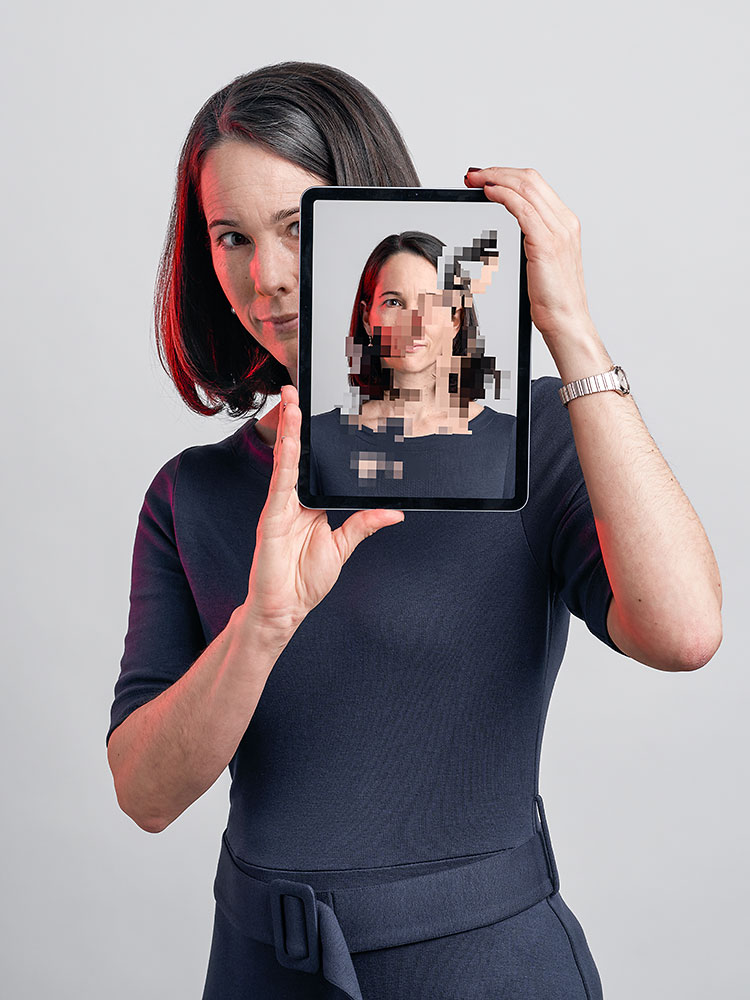 In conversation
In conversation“The hype has given way to skepticism.”
Interview: Urs Hafner / On social media, lies, half-truths and accusations spread like wildfire. That means it poses legal challenges for a democratic society, says Nadja Braun Binder, Professor of Public Law at the University of Basel.
-
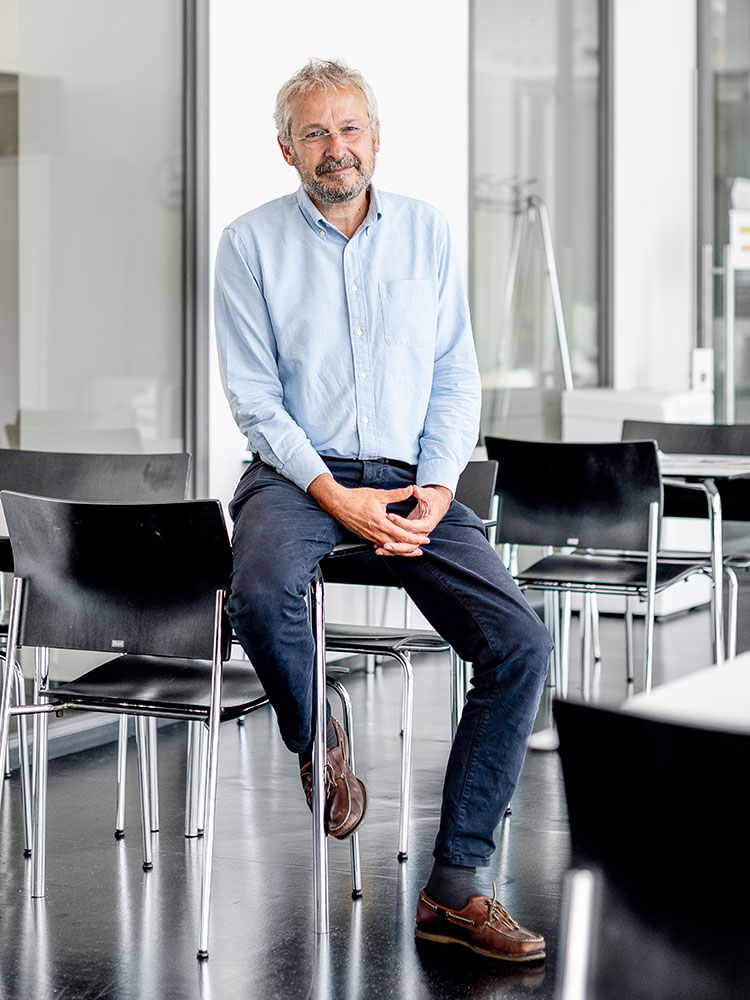 Portrait
PortraitStanding the test.
Text: Irène Dietschi / Immunologist Georg Holländer is a researcher through and through; he is considered a visionary and an inspiration. Professor Holländer is Director of the Botnar Research Centre for Child Health in Basel. It was not always certain that he would be able to take on this role.
-
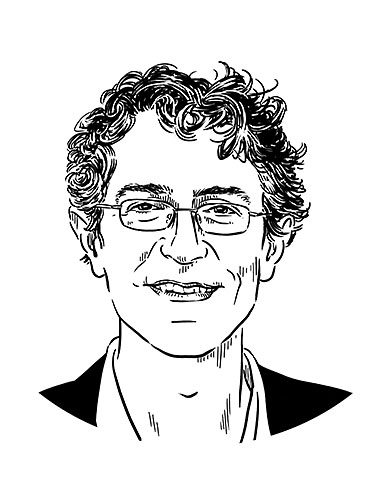 Opinion
OpinionCan Switzerland beat COVID-19, Jürg Utzinger?
Text: Jürg Utzinger / Assessing the country’s handling of the pandemic so far – from an epidemiologic and an economic perspective.
-
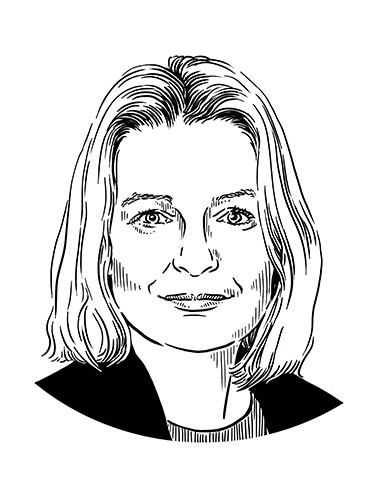 Opinion
OpinionCan Switzerland beat COVID-19, Sarah Lein?
Text: Sarah Lein / Assessing the country’s handling of the pandemic so far – from an epidemiologic and an economic perspective.
-
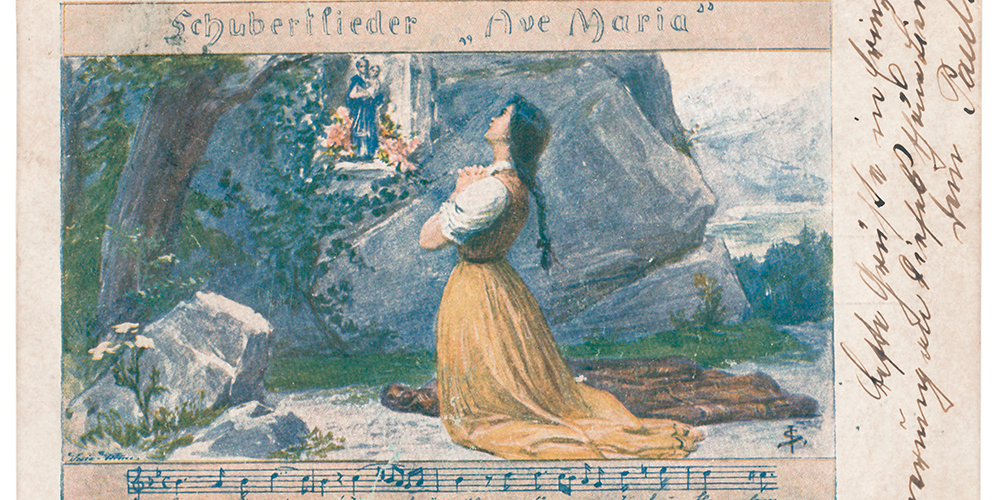 Research
ResearchKitsch speaks straight to the soul.
Text: Christoph Dieffenbacher / Superficial, saccharine and sentimental — people are usually being disparaging when they describe a piece of music as “kitsch.” This hackneyed term has been in use for some 150 years and is the subject of research by a Basel musicologist, who has made some surprising discoveries.
-
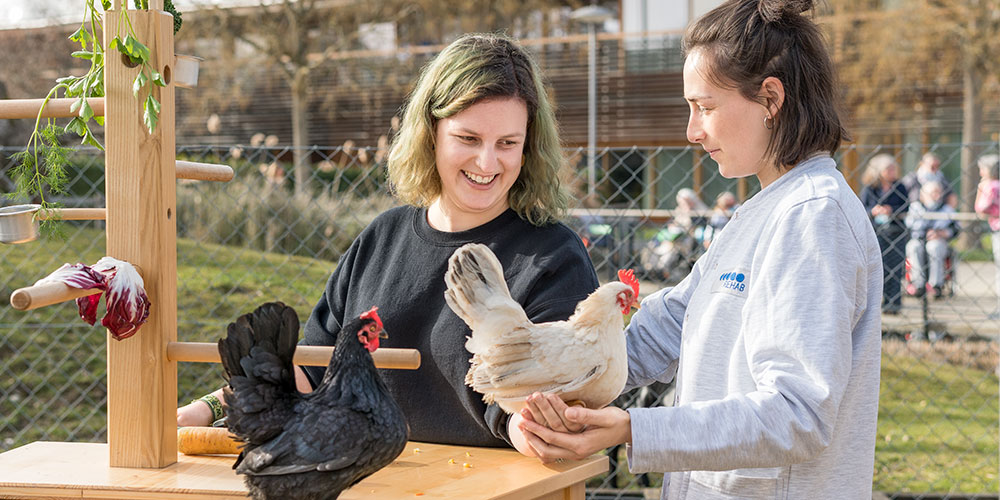 Research
ResearchTherapy straight from the chicken coop and the pigpen.
Text: Yvonne Vahlensieck / At a Basel-based clinic for rehabilitation, sheep, chickens and other animals help patients return to normal life. The clinic also conducts practical research on animal-assisted therapy. Our visit to the animal experts of this cutting-edge field.
-
 Research
ResearchEmotions as key to the Middle East conflict.
Text: Stephanie Kirchmayr / Many consider the conflict between Israel and Palestine as intractable. Political scientist and social psychologist Oliver Fink investigates the role of emotions such as humiliation and empathy in this seemingly irreconcilable struggle. To undertake his project, Fink lived and worked in Jerusalem for three years.
-
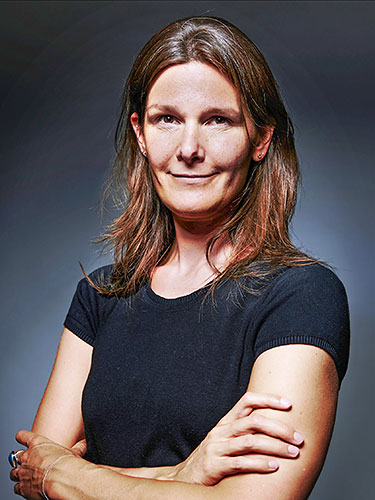 Alumni
AlumniA historian in the age of the data deluge.
Interview: Bettina Volz-Tobler / Historian Franziska Bühler of the Swiss Federal Statistical Office is responsible for coordinating the exchange of population data between the Swiss residents’ registers and Federal Statistical Office. Bühler serves as Section Head of sedex and Register Development, and she and her team play a key role in Switzerland’s federal data management.
-
-
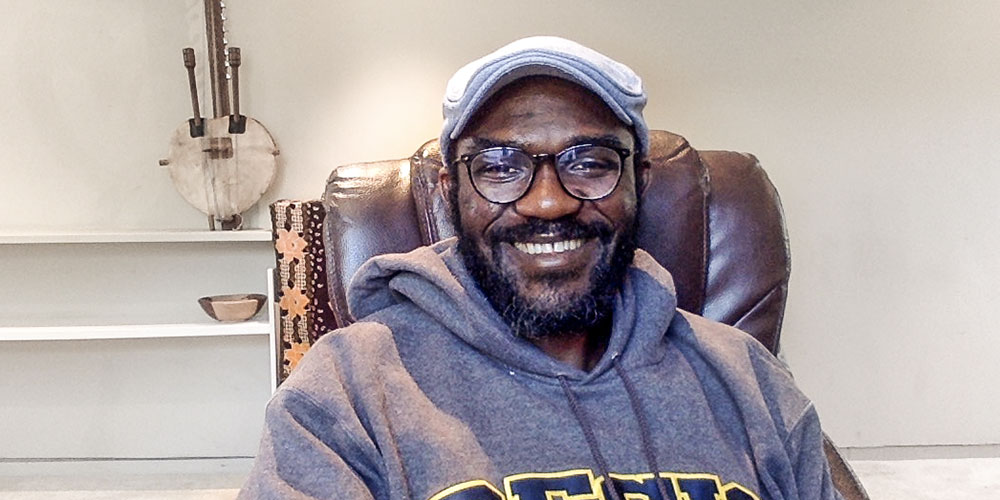 Alumni
AlumniOn being human in Africa.
Text: Divine Fuh / Divine Fuh completed his doctorate at the University of Basel from 2005 until 2009 at the Institute of Social Anthropology and Center for African Studies. Today, he is director of the Institute for Humanities in Africa (HUMA) at the University of Cape Town.
-
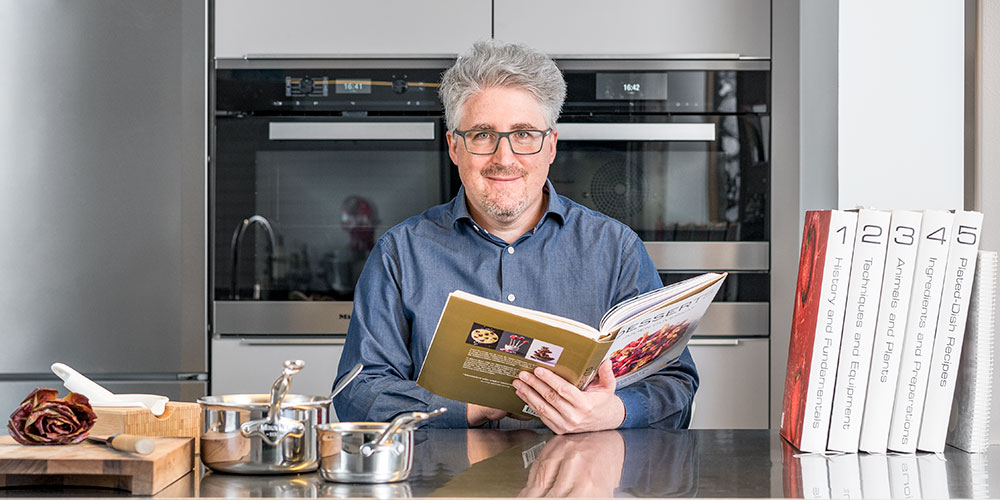 Column
ColumnScience meets the culinary arts.
Text: Michael Podvinec / My book: Molecular biologist Michael Podvinec recommends two favorite books from his cookbook collection.
-

